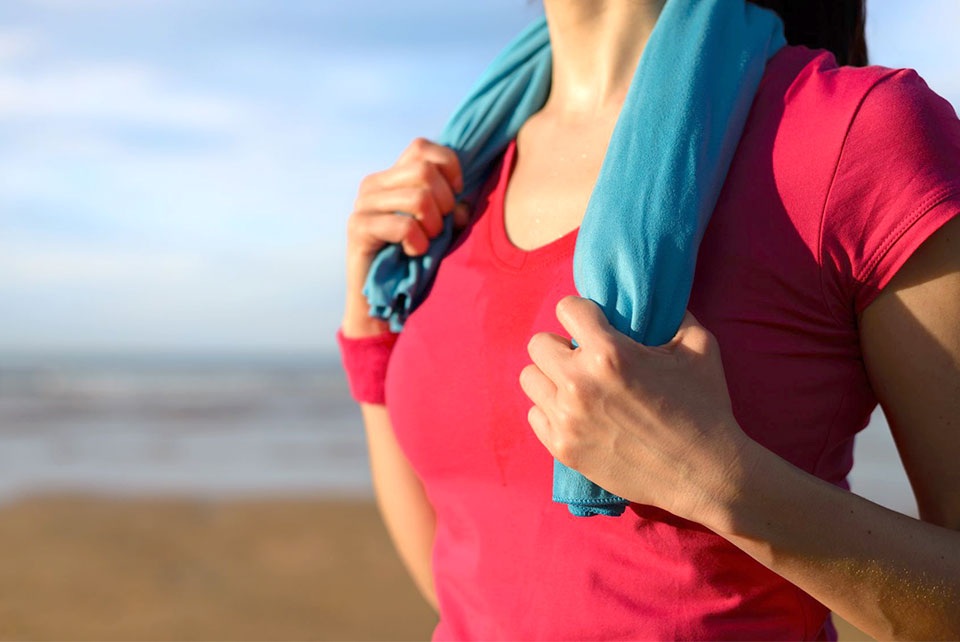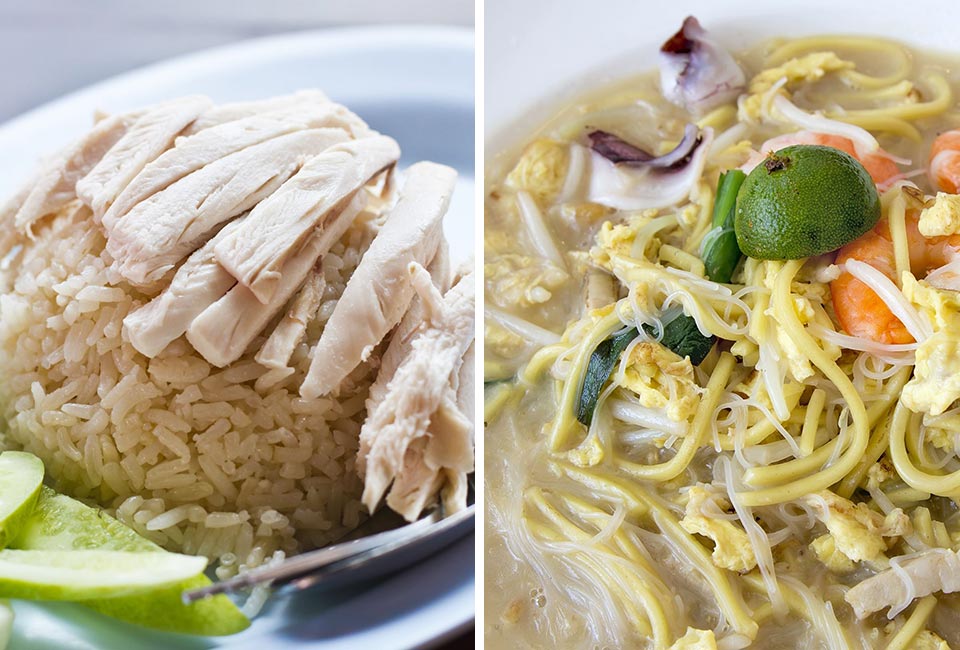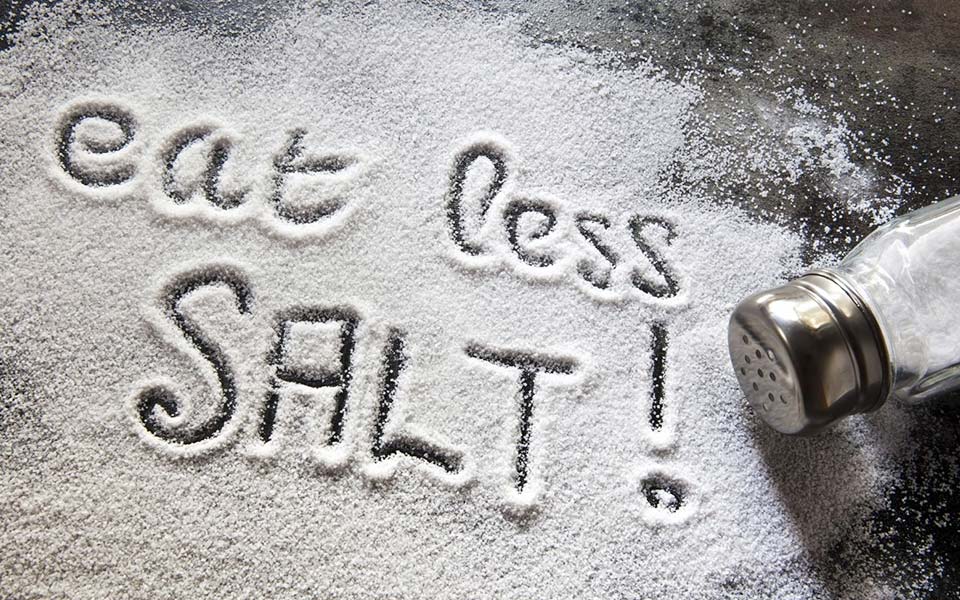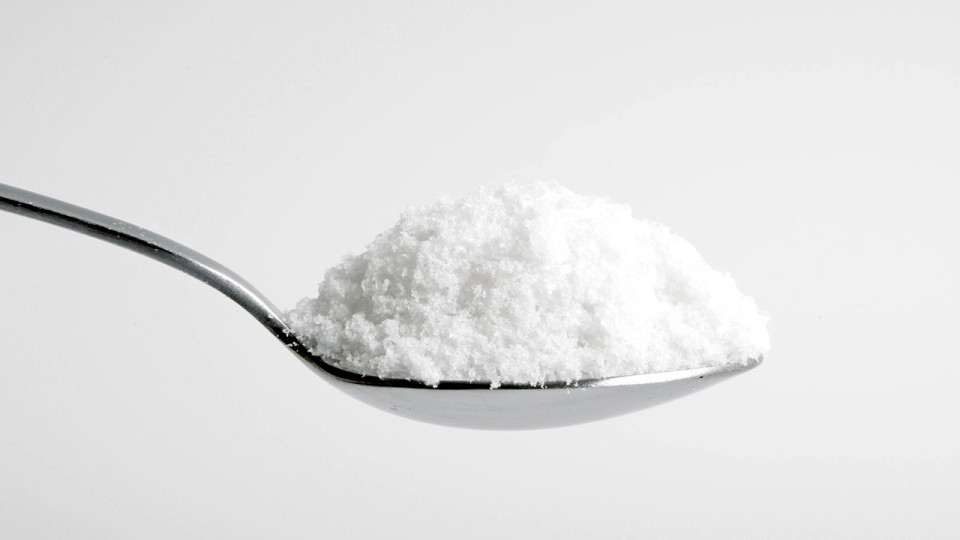The food an athlete eats can greatly affect their performance. Sodium intake is one of the main factors in a runner’s ability to compete and in their overall health. Healthy eating for runners will therefore include paying attention to the effects of sodium as well as to the sodium content in various foods.
Sodium and Sweat
During athletic activity, runners sweat and they lose sodium via their sweat. Sodium is important for certain processes in the body so losing too much can have serious effects on the runner’s health.
Alternatively, excessive sodium intake can cause another set of illnesses; the key is to find a balance. So what is the right amount of salt for runners?
First Things First: What Does Sodium Do?
Table salt consists of 2 chemicals: sodium and chloride. Sodium is the part of salt that helps to ensure the balance of water inside and outside of cells. When runners take in too much water so that the sodium outside of the cells is diluted, the cells (including brain cells) will swell.
When this happens they may exhibit certain symptoms like weakness, nausea and incoherence; these symptoms may worsen to the point where the runner goes into a coma. In extreme cases, the dilution of sodium can result in death. Long distance runners are at a particularly high risk of this.
Factors that Affect the Loss of Sodium
There are several factors that affect how much sodium a runner loses and how much they retain. These factors play an important part in finding the balance between too little sodium and excessive sodium.

Sodium Loss Through Sweat is Different for Everyone
Some runners lose more sodium via their sweat than others. Some may lose enough that it forms an unglamorous salt crust on their skin and clothing, while others lose much less.
The Amount of Sweat
Runners who sweat a lot lose more sodium than those who do not. If an individual loses 1kg of sweat while on a long run, their sodium loss may be as much as 4 grams.
The Temperature
If a runner is not accustomed to running in warmer weather, they can lose as much as 2 grams of sodium for each kilogram of sweat. Runners who are acclimatized to warm weather will lose significantly less.
Runners who lose a lot of sodium may want to compensate by eating salty foods after running.
How Excessive Sodium Affects the Body
Excessive sodium will put you at risk for high blood pressure, heart disease and stroke. In addition to lowering their intake of sodium, an individual with high blood pressure will need to consume foods rich in magnesium and potassium, which can help to mitigate sodium’s negative effects.
The health consequences of consuming excessive sodium stem from its effects on blood pressure. While people with normal blood pressure will excrete excess salt, those with high blood pressure may retain it.
On average, Singaporeans eat about 3.5 grams of sodium every day, while the recommended health intake is no more than 2 grams per day!
The Singapore Health Survey states that over a quarter (27.3%) of Singaporeans in the 30 to 69 age range have high blood pressure. Whether you’re a runner or not, monitoring your sodium intake is something you should consider!
Look Out for Foods with High Amounts of Sodium
Runners should monitor their diet closely because of how excessive sodium affects the body. To do this, you have to know which foods contain more sodium.
Breakfast Cereals
It is easy to overlook sodium content in cereals. Most people never consider how much sodium cereals contain; however, some cereals have as much as 0.5g per serving. Cereals may contain lots of sodium even if they have otherwise healthy ingredients like bran and raisins.
Cheese
Cheese is an excellent source of protein so it is a good idea for athletes to have it in their diet; however, it should be eaten in moderation. The sodium content in cheese varies depending on the type, but certain cheeses like parmesan contain significant amounts.
Chicken Rice
One plate of this hawker dish has over half of the recommended sodium intake for adults, at almost 1.5 grams of sodium. The additional sodium comes from the rice, so asked for white steamed rice instead to reduce the sodium content.

Fried Hokkien Prawn Mee – Fried mixture of yellow noodle, thick rice vermicelli, prawn and cuttlefish
This is another popular Singaporean hawker favourite. However, it has over 1.4 grams of sodium in a plate. Don’t eat a whole plate yourself. Share it with your friends after a run so that you won’t consume too much sodium.
The Verdict?

As a runner, watching the sodium in your diet is not much different from non-runners. Given the high levels of sodium that comes in foods, most people consume enough sodium without having to add extra salt to their food.
While the recommended sodium intake is 2 grams daily, those runners who lose a lot of sodium by sweating will usually find that they consume more without making a special effort!





